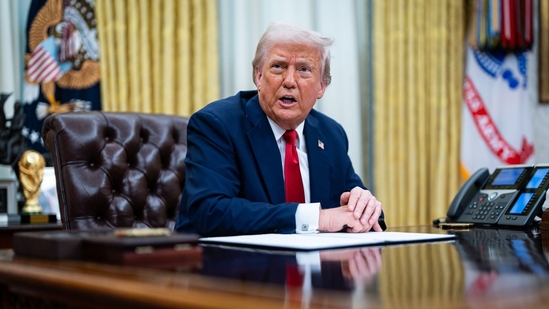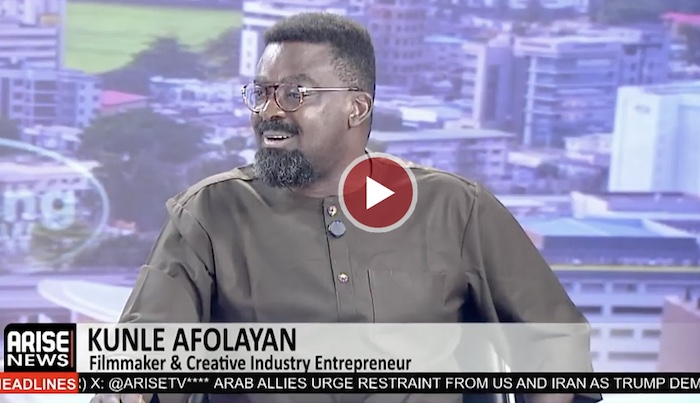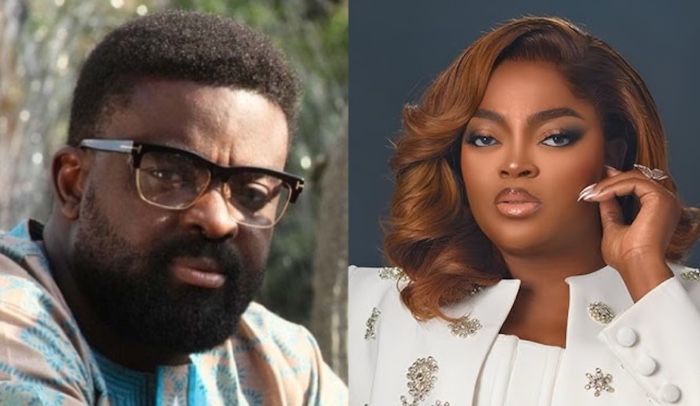
US President Donald Trump speaks during an executive order signing in the Oval Office of the White House in Washington, DC, US, on Monday, March 31, 2025. The order directs the Federal Trade Commission to work with the Department of Justice to ensure that competition laws are enforced in the concert and entertainment industry, and pushes state consumer protection authorities on enforcement. Photographer: Al Drago/Bloomberg
US President Donald Trump has threatened to sue the British Broadcasting Corporation (BBC) for at least $1 billion, accusing it of defamation over the editing of a 2021 speech he delivered on the day his supporters stormed the US Capitol.
In a letter sent on Sunday and seen by Reuters, Trump’s lawyers demanded that the BBC retract the documentary, issue a public apology, and compensate him for what they described as “overwhelming reputational and financial harm.” The letter set a deadline of Friday for compliance before legal action begins.
The controversy centres on a Panorama documentary that aired on the BBC, which Trump’s legal team claims “intentionally and deceitfully” edited three sections of his January 6 speech to make it appear as though he was inciting the riot. According to the letter, the BBC also omitted parts of the speech where Trump told supporters to march “peacefully and patriotically.”
The revelations have deepened the crisis engulfing the BBC, following the resignation of Director General Tim Davie and Head of News Deborah Turness on Sunday. BBC Chair Samir Shah has since apologised, calling the editing “an error of judgment,” while denying claims of institutional bias within the corporation.
Shah said the broadcaster was reviewing the legal threat and would “respond directly in due course.” The controversial documentary has been removed from the BBC’s iPlayer service.
Trump’s legal team argued that the edit amounted to a deliberate attempt to interfere in the 2024 US presidential election. “The BBC defamed President Trump by intentionally and deceitfully editing its documentary in order to try and influence the Presidential Election,” a spokesman said.
Legal experts note that while public figures in the United States face high hurdles in defamation cases—requiring proof that a defendant knowingly published false information—Trump’s lawyers plan to invoke Florida defamation law, since his primary residence is in the state.
In England and Wales, defamation claimants must show that a publication caused or is likely to cause “serious harm” to their reputation.
Shah, addressing lawmakers on Monday, insisted that while “mistakes were made,” the BBC remained committed to impartial journalism. “I know that BBC News’ DNA and culture is to be impartial — to provide the best and most trustworthy news possible,” he said.
British Prime Minister Keir Starmer’s spokesperson defended the corporation, saying the government did not believe the BBC was biased or corrupt but emphasised the need to uphold its editorial standards.
Trump continues to insist his 2020 election loss to Joe Biden was due to fraud — a claim rejected by multiple courts, audits, and independent investigations. The January 6 riot, which followed his rally near the White House, resulted in deaths, injuries, and the temporary suspension of Congress’s certification of Biden’s victory.
The BBC, a publicly funded broadcaster operating under a Royal Charter, is now under mounting pressure to repair its reputation and rebuild public trust amid growing scrutiny over its editorial integrity.
Melissa Enoch



